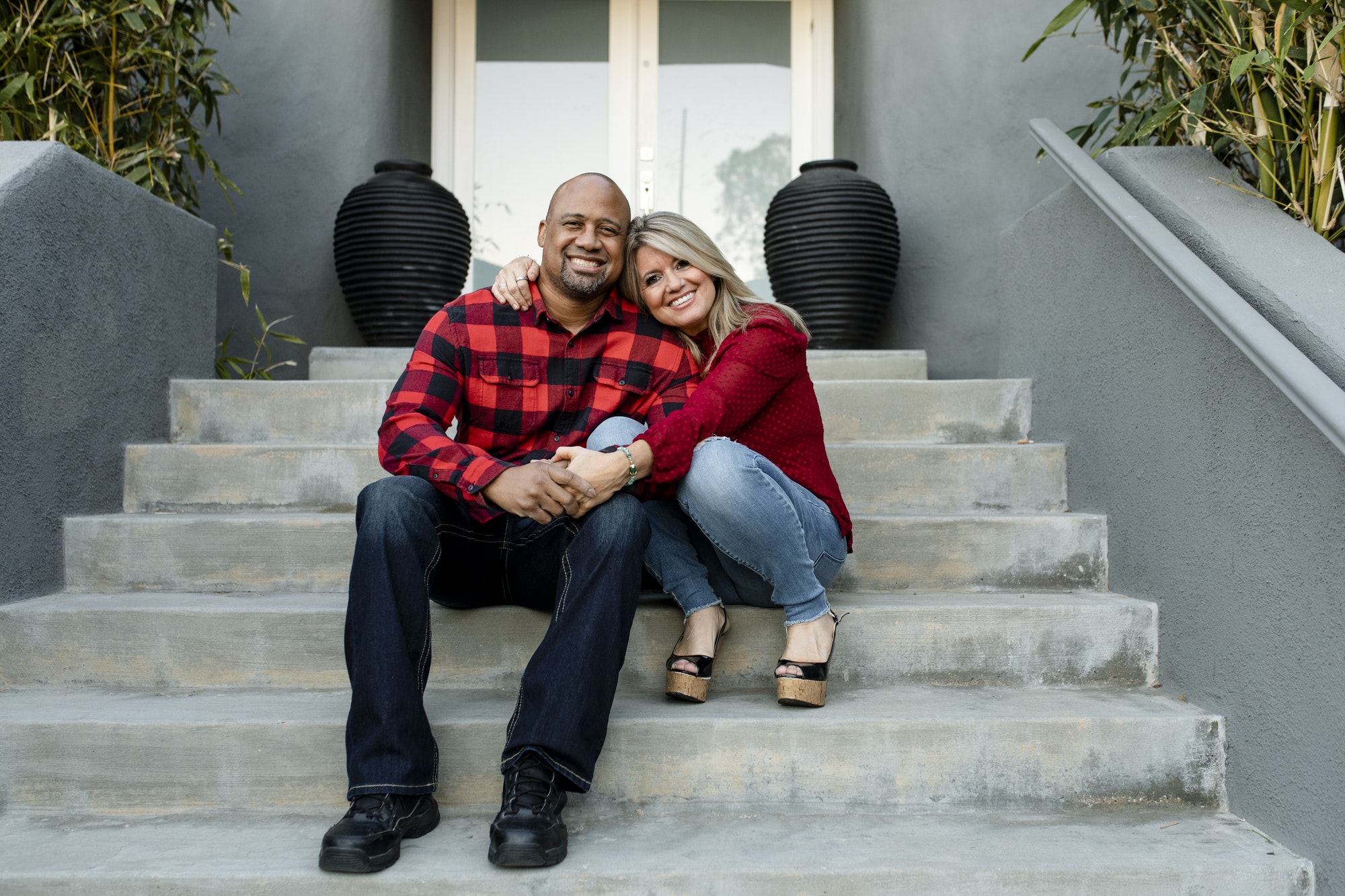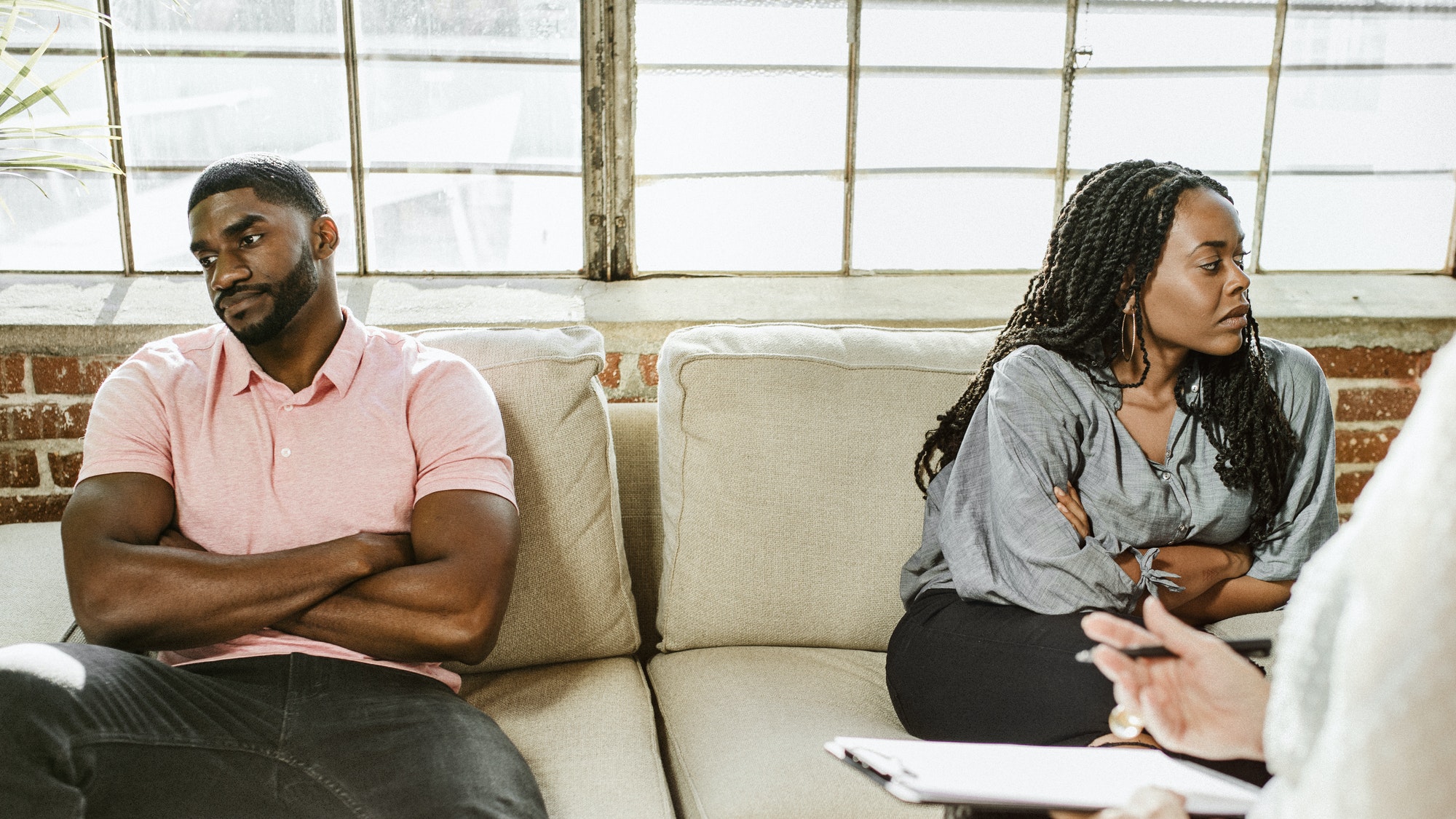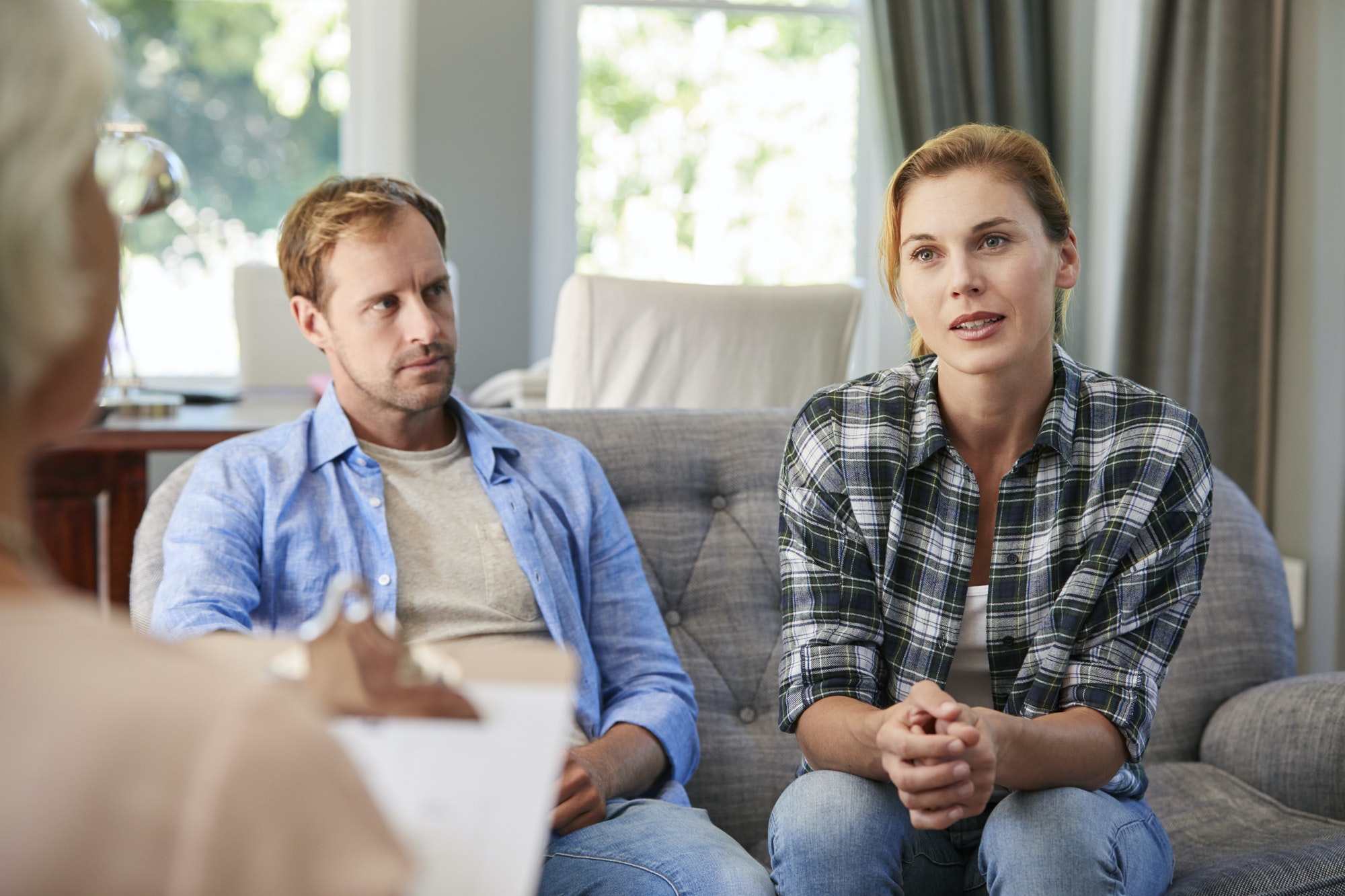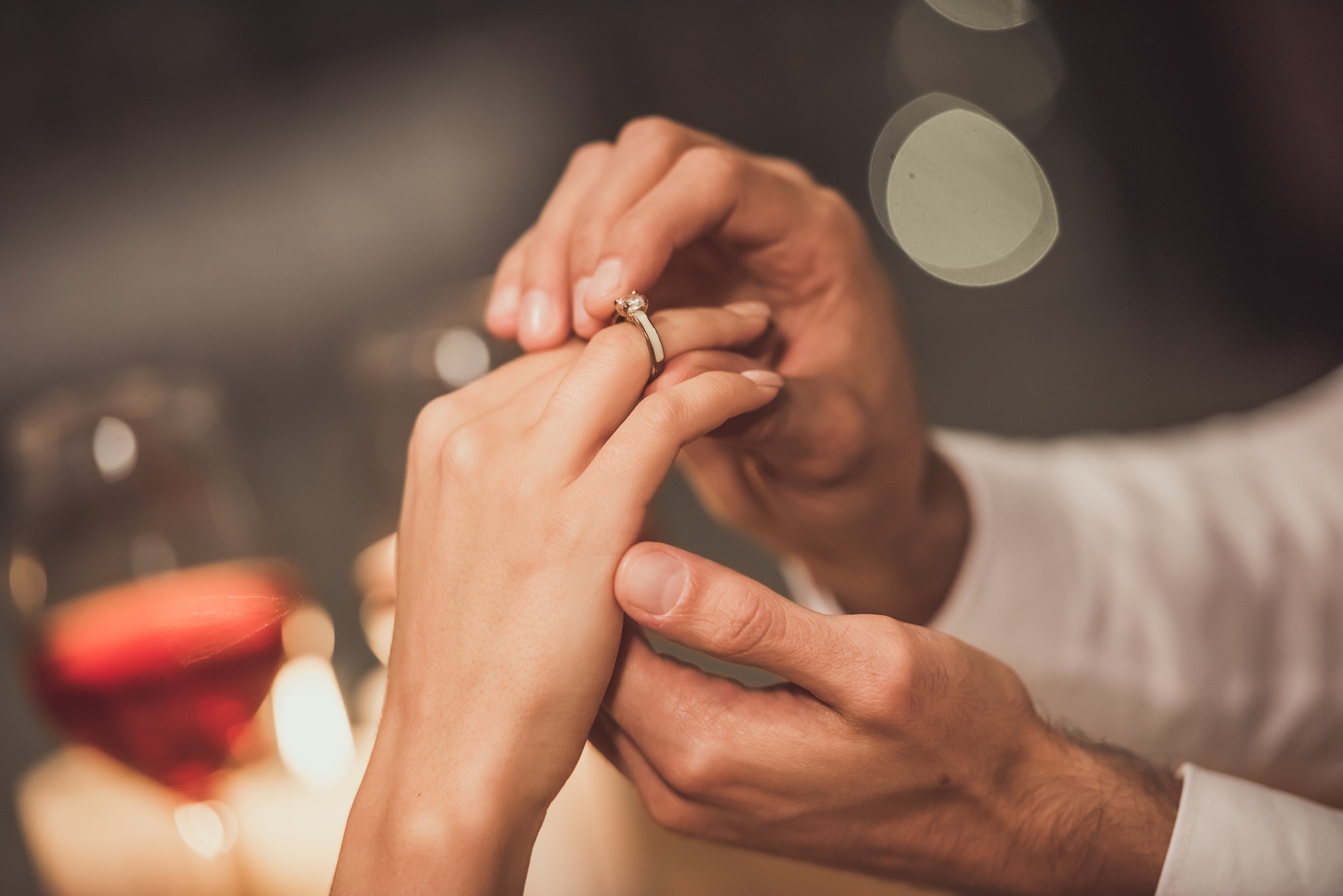

Saving a marriage that is falling apart is no easy task, and if you’ve found yourself facing a serious challenge in your relationship, it can be overwhelming to even consider how to begin. You may even be struggling with whether to ask for help at all!
The good news is that with the proper tools, you can rebuild your relationship to be even stronger than it was before. Here at Happily Committed, we’ve spent years finding the best ways to empower couples to live out the full potential of their relationship, and in our view, the best tool for the job is clear. Our specialty: one on one coaching. However, far too many people miss out on this incredible tool for one simple reason: they don’t know the truth about how marriage counseling works.
Time and time again, I meet clients who have admitted to waiting months, if not years, before turning to us for help with their marriages, and they were all held back by the same misconceptions about coaching or marriage counseling. Inevitably, the longer they waited before reaching out, the more work we had to do to get their relationships back on track! That’s why I want to dedicate today’s article to showing you what to expect from coaching and marriage counseling, to give you the confidence you need to take your first steps towards saving your marriage.

In my years as a relationship coach, I’ve heard countless stories of people waiting far too long to reach out to a professional and ask for help rebuilding a marriage that is falling apart. So many of my clients have told me about their hesitation to take advantage of coaching or marriage counseling, and all of them had the same thing in common that held them back: a set of misconceptions about what coaching or marriage counseling actually are! It’s not surprising that misconceptions are so common, simply because relationship therapy is talked about so little. Believe it or not, several of my clients with truly remarkable success stories sometimes don’t even share their coaching experiences with their friends, simply because they’re afraid of being judged on the basis of the same misconceptions they had before they began counseling! This cycle keeps healthy information about what to expect from marriage counseling out of reach, and at the same time, creates even more misconceptions, which all lead to the same inaccurate stigma: that marriage counseling doesn’t actually work.
If you’re reading this because you’re looking for help with your marriage, the very first step is breaking out of this cycle and learning how to identify the misconceptions that may be holding you back. I have heard plenty of these over the years, so I want to give you some of my tips about how to spot them. Let’s take a look at some of the most common misconceptions that I come across!
By far, the most common one is the belief that seeking coaching or marriage counseling is the same as admitting that you have failed in your relationship. It’s never easy to ask for help, and it’s completely natural to think that looking for guidance means that you’re not strong enough to handle the problem on your own. But I always tell my clients the same thing: asking for help is a sign of how committed you are to the relationship, and more importantly, it’s a sign of personal strength! You haven’t lost sight of your goal to be happy with your partner, and you’re not going to quit when times are tough. Doing everything you can isn’t the mark of a failure; doing nothing is! And by showing your willingness to fight for your relationship, you’ve already demonstrated that you have what it takes to make it succeed.
Another common misconception is that a stranger – even a professional – is incapable of truly understanding the complex, unique issues in your relationship. This causes you to be pessimistic about the success rate of therapy. You know the problems you have with your spouse through and through, you’ve tried everything and yet things are still difficult, so how can someone you’ve never met before possibly have any answers for what to do? This one is also a very understandable thing to believe, since every relationship is so different, and we spend so much time with our own problems that we can easily be tricked into thinking nobody can understand them better than we do. However, quite often we are so close to the problem in our relationship that we can’t see the big picture. It’s precisely the fresh perspective of a third party that can shine a light on solutions that might be hiding right under our noses. After all, this is what we are trained to do! As relationship and love coaches with years and years of experience, our job is to appreciate precisely what makes your situation unique, while bringing you a new perspective that can help guide you and your spouse best towards a healthy and loving relationship.
I would also like to take a moment to clarify that here at Happily Committed, we offer relationship and marriage coaching, and we work with couples and individuals. A marriage therapist is licensed to work with a married couple and address trauma healing, and if that is what you need, we recommend contacting a licensed marriage counselor. Coaching and relationship therapy are slightly different, but equally effective. In today’s article, I want to answer the question of why this type of guidance is so effective, so let’s continue!
Will marriage counseling save my marriage: A relationship coach’s honest answer
The third misconception I want to point out is the idea that marriage counseling is about quickly fixing a single problem. This innocuous little misnomer keeps so many people from taking advantage of this amazing tool, simply because they believe that their problem is unfixable. Let me give you an example: I had a client who had been unfaithful to his wife, who finally managed to convince her to try couples coaching as a last resort before their divorce. She was convinced that it was unnecessary because no one can turn back the clock and erase his infidelity, but gave it a try. My first step was to explain the same thing I’m telling you now: these sessions are not about fixing or undoing the actions that have caused you so much pain. They’re about addressing the underlying issues that led to those actions in the first place, and embarking on a day-to-day journey as a couple towards a healthier dynamic in the future. Once my client’s wife agreed that, despite everything, she still loved him, we began working together. His infidelity was one of the last things we had to address throughout our time together, because there was so much underneath that ultimately had rotted their relationship out from inside years before he cheated. Once they had worked together to resolve those issues, their relationship could start blooming again, and they avoided divorce. I bring up this example to point out that often we have misconceptions about our own goals for relationship counseling! And once you begin, you find that relationship counseling is all about growth and development as a couple, to be consistently better to each other, and to rediscover the love you have for each other. Fixing the actual issues is a byproduct of that process.
So, do coaching sessions and marriage counseling work? Yes! Our countless couples coaching success stories here at Happily Committed are the proof that it does. But before getting started, it’s so important to dispel the stigma that gives rise to negative expectations, because they can keep you from getting started on rebuilding your relationship for far too long, and even worse they can make it more and more difficult to fix the problems in your marriage. You’re on the right track reading this article, because learning how marriage counseling works is the first step towards rebuilding your relationship. Now that we’ve talked about what marriage counseling is not, it’s time to start learning about what it is!

Often, people are surprised to hear me wholeheartedly recommend coaching and counseling to couples who are already in a healthy, loving relationship. However, now that we’ve been over some of the misconceptions surrounding it, you can probably guess why that is: marriage counseling is healthy for everyone! And the reason for that points to the core of what marriage counseling really is.
Marriage counseling is the process of strengthening the bonds in your relationship, reaffirming your identity and reigniting the spark that drew you to your partner in the first place. Embarking on a journey of rediscovery, vulnerability, and renewed commitment is a big deal, and it forces you to look deep down at the core of your relationship. This process of digging deep and reaffirming your love for each other is equally valuable for couples who are happily married as it is for couples who are facing serious issues in their relationship. The process of relationship coaching isn’t about “a return to normalcy,” it’s about something much more important: making your relationship even better than it was before.
Of course, since every relationship is unique, people often come to me with plenty of questions when they’re considering asking for help in their relationships. Next in this article, I wanted to put together my answers to the four most common questions I get, to help you decide on your next steps!

As dedicated love and relationship coaches, the team at Happily Committed has plenty of experience in helping people through difficult times in their relationships. Our mission is not to provide superficial fixes to the problems of our clients, but instead to give them the tips and tools they need to empower themselves to achieve their goals in their relationships. This is the core of a love coach’s job – helping you empower yourself! When it comes to marriage counseling, it’s the same process, except usually for two people. Like we do here at Happily Committed with our clients, a marriage counselor help couples rebuild their own happiness and their own identities, which they may have lost sight of somewhere along the long and difficult road they’ve traveled together. Once we’ve helped them do that, it’s much easier for them to catch sight of the same spark that drew them to each other in the first place.
One of the most important lessons to take from coaching and marriage counseling is to think of empathy as a skill. It may sound surprising at first, especially if you’ve always thought of empathy as an unchangeable trait, but I’m here to tell you that it can be learned and practiced. Through these sessions, clients learn how to better put themselves in the shoes of their partners, how to feel a deeper connection to their happiness, and how to experience the emotions of their partner as their own.
Practicing empathy takes time and hard work, and training clients in this skill is precisely the specialty of a marriage counselor and love coach. By focusing on building up this foundation of strong empathy, a coach or counselor can guide his or her clients to a place from which the problems in the relationship can more easily be solved.
How to repair a marriage: Pro tips from a relationship coach!

Unfortunately, it’s very common for my clients to have spouses who aren’t receptive to the idea of coaching or marriage counseling. Those ugly misconceptions we talked about earlier are swirling around in their minds, and they truly believe that there isn’t any use going. You may be one of these people, and if you are, don’t worry: it’s far more common than you think. You may even be afraid of how your spouse might react at the suggestion of counseling! So what happens if your spouse doesn’t want to come with you?
You can still save your marriage. Working with one of our love coaches, we can create a tailor-made action plan to empower you to take the steps you put your relationship back on track. The same lessons of self-respect, communication, and finding your own happiness still apply without your spouse there! And most importantly, they still have a strong effect on the quality of your relationship, and help you to behave as an example that inspires your partner to do the same. If you’d like to get started, check out our Course in How to fix your Relationship.
Although these answers don’t cover nearly all of the questions that I’m usually asked by people who are first reaching out, I hope this article has given you a solid introduction to the world of relationship counseling, and given you the confidence you need to make the decision that’s right for you. Let’s recap the most important takeaways:
We discussed the common misconceptions that can keep you from seeking professional help in your relationship. The three biggest ones you need to guard against?
#1 Seeking marriage counseling or coaching is NOT the same as admitting that you have failed in your relationship. Remember, asking for help is a sign of strength, and strength is what leads to success!
#2: Sometimes a stranger CAN empower you to fix your marital problems! Sometimes a third pair of eyes is all it takes to see the problems right under your nose.
#3: Coaching and marriage counseling are NOT about quick, superficial fixes! The journey you’re embarking on is about treating the underlying illness, not the symptoms, and will leave you better off in the long run.
Next we moved on to my answers about some of the most common questions I get about marriage counseling. Let’s go over them one more time:
What does a marriage counselor do? It’s all about finding your own happiness, together!
What happens in marriage counseling? A crash course in learning to have more empathy!
Can I Do Marriage Counseling Alone? Yes, and the same lessons still apply!
Here at Happily Committed, we’d love to help you find out more. If you’re curious about booking a coaching session, you’re welcome to click here to set up a meeting with me or a member of my team. We can ask you specific questions to help analyze your specific situation to a game plan that works for you.
The fact that you’ve come to this website and read this article already shows you have what it takes to make your next step. I’m wishing you all the best in life and love, and I know you can achieve the relationship you deserve.
Your coach when you want to know how marriage counseling works,

No spam, notifications only about news, events and updates.

“How long before moving in together?” This is a question I’ve been asked time and time again throughout my coaching sessions, and it’s no surprise!

A long time ago, he made a mistake that hurt you deeply. Your relationship was rocked by infidelity, but you put in the work to

Is your man dragging his feet when it comes to popping the question? In your mind, your relationship has long been ready for marriage, but

During my time as a love and relationship expert here at Happily Committed, I’ve seen every kind of relationship you can imagine. Everyone who comes